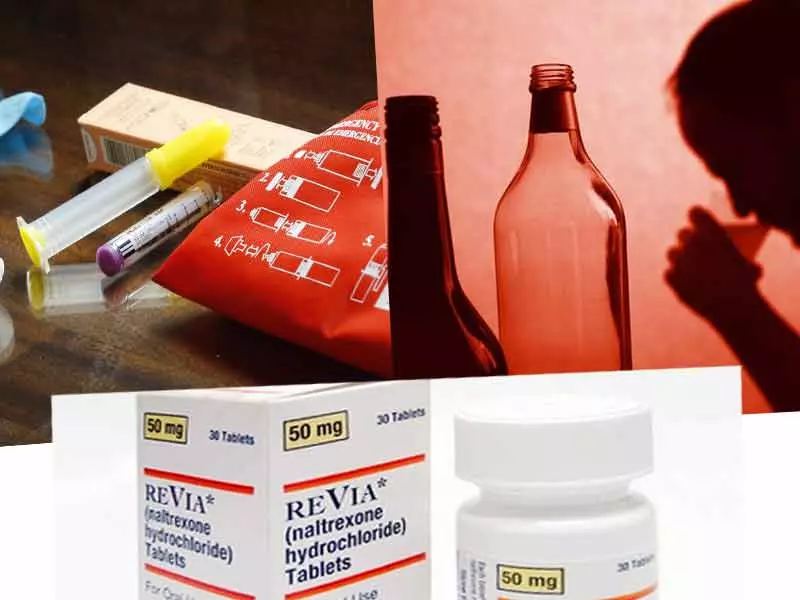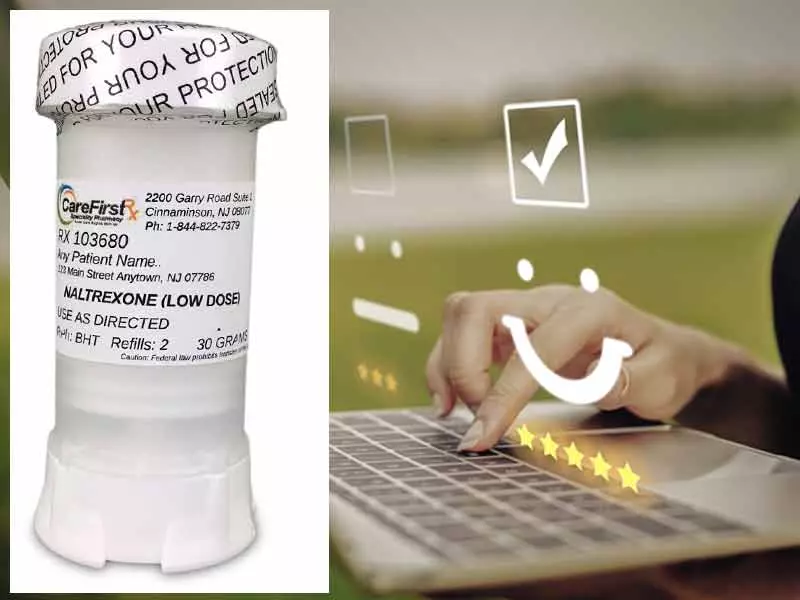Alternative names: Revia, Vivitrol
Dosage: 50 mg
In the treatment of alcoholism, the change of the patient’s attitude to the active substance is very important. The doctor tries to correct pathological connection, affecting the mechanism of addiction, using, inter alia, medication methods. Naltrexone is a substance that has been created to block the receptors responsible for the emergence of ethanol euphoria.
!banner!
Tablets or capsules
First and foremost, it is important to know that the treatment of alcoholism by any form of naltrexone hcl, whether it is a tablet, intramuscular injections or an implant, can be started only after the provocative test with naloxone (the test must be negative). This medicine is also used for the treatment of drug dependence.
The standard dosing of tablets or capsules is 50 mg. Alcoholism treatment is carried out by the following scheme: 1 tablet (50 mg) per day; it is considered that taking naltrexone for 12 weeks prevents relapses for 6 months. However, experts say that the success of treatment depends to a large extent on the patient's consent.
Naltrexone in tablets have a number of contra-indications; it cannot be used in patients under 18 years of age, pregnant and lactating women, persons with liver disorders (hepatic failure, acute hepatitis). And of course, its use is prohibited when taking opioids, in withdrawal syndrome, and with a positive test for the presence of opioids in the urine. Individual hypersensitivity or intolerance is also possible.
The medicine gives a heavy burden on the liver; therefore it is necessary to control the level of transaminases during the treatment. Naltrexone cannot be combined with any hepatotoxic drugs. If you notice the yellowing of the eyes sclera or dark-colored urine during the use of the drug, always consult a doctor.
Naltrexone Pros and Cons
Medications on the basis of naltrexone have a milder effect. In the practice of alcohol dependence treatment, disulfiram injections are often used, but this drug can cause alcohol intolerance or even death in case of alcohol consumption. Of course, if after suggestive treatment, the fear for their life keeps people from using alcohol, the effectiveness of the drug is higher. However, it is also not a panacea.

Drugs on the basis of naltrexone are in demand because they are less harmful to health, and the person treated with them just stops to enjoy alcohol. However, the reviews show that the effectiveness of the method is high only when the patient deliberately wants to get rid of alcohol addiction. For good sustainable results, be sure to combine the drug with sessions of individual or group psychotherapy.
Pharmacologic Effect
Application: Alcohol addiction (with the consent of the patient and in combination with psychotherapy and social practices); prevention of the pharmacological effects of exogenous opioids to maintain opioids-free state in patients with opioid addiction after previously held detoxification (as part of psychological and vocational rehabilitation program). Also naltrexone hcl is used as a part of weight-loss preparations.
Contraindications: Hypersensitivity (including that to naloxone), opioid dependence, a positive test for the presence of opioids in the urine, withdrawal syndrome, acute hepatitis, liver failure, pregnancy, breast-feeding (at the time of treatment is prohibited), children and youth age (up to 18 years).
Side Effects
FYI: Article about Naltrexone Side Effects
Side effects: loss of appetite, nausea, vomiting, diarrhea or constipation, abdominal pain, liver function abnormalities, headache, fatigue, sleep disturbances, anxiety, dizziness, depression, paranoia, hallucinations, facial flushing, weakening of potency, nasal congestion, cough, shortness of breath, nose bleeds, phlebitis, edema, increased blood pressure, tachycardia, pain in joints and muscles, hemorrhoids, tremor.
Interaction: Increases (mutually) the risk of liver damage when combined with hepatotoxic drugs. Lethargy or increased sleepiness is also possible when combined with thioridazine.
Doctors believe that with the advent of Naltrexone an effective means have appeared to combat opium addiction. Before the advent of drugs based on Naltrexone there were no effective tools for quick removal of the withdrawal from strong drugs syndrome.
Naltrexone Reviews

There are many feedbacks from patients who write good reviews about naltrexone; they find it quite effective. This medication helps return to a sober life. It successfully struggles with addiction and eases the craving for alcohol and drugs:
- It really helps against alcoholism, reduces the craving for alcohol. If case of failure, it does not let you get drunk and go into a drinking bout.
- Honestly, Naltrexone has helped, though the side effects are strong and heavy. However, I managed to get rid of drugs addiction.
But many do not like its side effects; most often they appear at the first medication.

